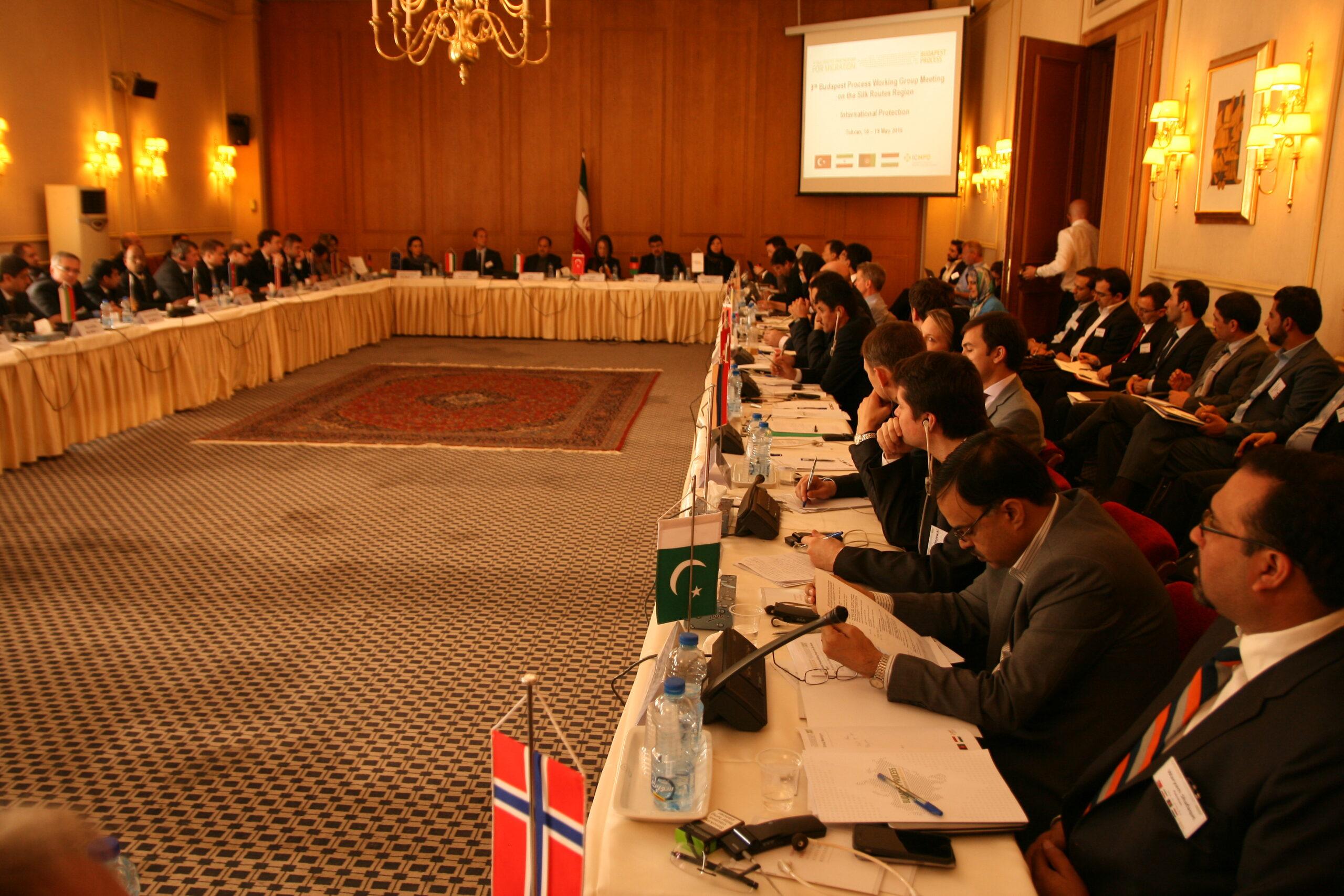Tehran: The 8th Silk Routes Region Working Group Meeting and the final regional training of the Silk Routes Partnership Project provided the first opportunity for countries of origin, transit and destination along the Silk Routes to meet in the light of the 2015 events. The meetings were hosted by the Islamic Republic of Iran at the premises of the Institute for Political and International Studies.
5th Regional Training on International Protection – 15-17 May 2016
At a time when refugee movements take place at an increasing pace, it was crucial for Budapest Process countries to meet and discuss challenges in the identification of persons in need of international protection, provision of adequate reception conditions for asylum seekers and offering refugees durable solutions through a joint approach. This regional training examined the applicable international standards for the protection for refugees; provided an in-depth introduction to migration and refugee law and practices and focused specifically on the respective regimes in force in the Silk Routes countries and in the European Union (EU). Participants exchanged information and experiences with their partners from the same region, but also discussed particular issues with external experts from the EU as well as the UNHCR office in Tehran, who led the training. The officials from the Silk Routes countries evaluated the training as extremely useful to facilitate regional experience exchange and to ensure better cooperation in the field of international protection of refugees.
8th Silk Routes Region Working Group Meeting – 18-19 May 2016
Iran has been generously hosting a large refugee population for the last decades. Therefore, both the topic as well as the location triggered a wide response and interest among Budapest Process participants. As a result, the working group meeting brought together delegations from 30 countries and 9 organisations/ institutions from all over Europe and Asia.
During the two-day meeting, participants discussed solidarity among countries in addressing protracted refugee situations as well as strengthening protection systems through international cooperation. Once again the Budapest Process was emphasised as a unique forum bringing together countries of origin, transit and destination along the Silk Route around one table.
Among the biggest challenges participating countries identified the lack of sufficient protection space for refugees, provision of durable solutions and addressing the root causes of forced migration. Another challenge identified by participating countries was secondary movements and the issue of harmonising protection systems to avoid such developments. Overall, participants agreed that international protection needs to be addressed at the global level and that countries need to share the responsibility in offering support to those in need of protection. Several participants also underlined that a credible and generous asylum system needs to encompass a functioning return system for those who are not in need of protection and who do not have the legal right to remain in the country of destination.
